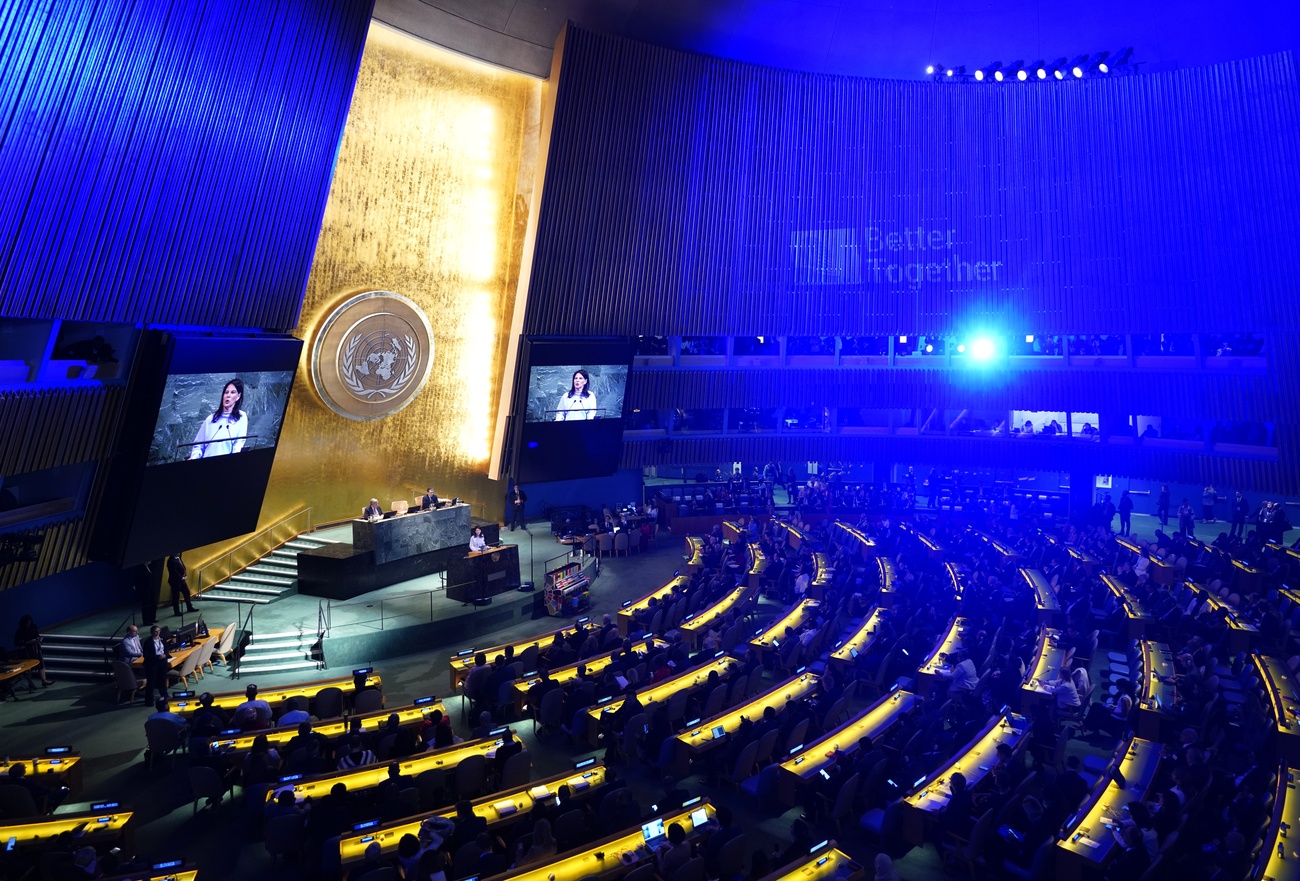
Geneva, City of Aspiration

I had an interesting day in Geneva last week: in the afternoon I went to see Marie Antoinette’s jewels. November in Geneva means the auction of all sorts of sparkling baubles, and this month it is the turn of the diamonds and pearls that once graced the neck of the last queen of France.
We all know what happened to her, of course, and I was reminded of that in a strangely ironic way when I reluctantly left her pearls to hurry to my next appointment: a debate on “Overcoming Inequalities in a Fractured World: Between Elite Power and Social Mobilisation”.
More than two centuries after Marie Antoinette’s death, the reasons that caused her to be parted from her jewels, and indeed that caused her head to be parted from her body, are still around today.
The debate was the start of a two-day conference organized by the United Nations Research Institute for Social Development. Focusing on the shameful fact that the gap between the world’s wealthiest and the world’s poorest is actually growing, that 50 percent of global wealth is in the hands of a miniscule one percent of its population, the conference sought to find the causes, and some solutions, to such staggering inequality.
Of course, there are no immediate answers, but the fact the conference was held at all, bringing together participants and their different skills and experiences from all over the world, is one of the great things about Geneva.
Geneva, City of Peace
The city is nothing if not aspirational. As visitors cross its boundaries, they are welcomed with the words ‘Geneva, Capital of Peace’.
Given the brutal, protracted conflicts we see today in Yemen, or Syria, Geneva’s slogan might seem not just over optimistic, but pure fantasy. And yet if any city in the world is going to work towards peace, or towards reducing poverty, it has to be Geneva. That’s why, not content with hosting that conference on inequality, Geneva Peace Week was taking place at the same time. It was four packed days of discussions on everything from protecting children in conflict to the role of digital technology in peace promotion.
Four days of hot air and talking shops, some might say, but would it be better if all these discussions did not happen? If the many aid agencies and non-governmental organisations to which this city is home did not do some brain storming from time to time?
There are more than 200 international organisations in Geneva, from global giants like the International Committee of the Red Cross and the UN Refugee Agency, to smaller groups some readers may not have heard of: Drugs for Neglected DiseasesExternal link for example, which is quietly but successfully working on new treatments for the illnesses which affect the world’s poorest: leishmaniasis, sleeping sickness, or Chagas disease.
Or there is GMapExternal link. It’s a gender and mine action programme which seeks to ensure that when de-mining programmes are set up, the specific needs and mobility patterns of women and girls, as well as men and boys, are considered.
Geneva, City of Ideas
All these groups are, in one way or another, working for peace, and to improve the lives of people in the worst situations imaginable. The momentary peace of receiving food or medical care from the ICRC even in the midst of conflict, or the relief of arriving at a UNHCR shelter when you have had to flee your home.
Or perhaps the improved life that comes with being able to work knowing that you will be spared the illness which may have killed your parents and grandparents. Or the better future your children will have because their education will not have been interrupted by uncleared mines along their route to school.
There is a bigger picture too, of course: illness is a trigger for poverty, poverty is a trigger for instability, migration flows, and conflict. And conflict is a trigger for more poverty, and more migration flows. So the efforts made by these organisations, big and small, are contributing to peace not just on an individual level, but to its promotion and preservation on a global level.
That’s why it’s a positive thing that the organisations with such skills and experience do talk to each other, and do pool their ideas about how to tackle the biggest challenges facing our planet. And let’s face it: those challenge are pretty enormous right now.
And, as Marie Antoinette reminds us, ignoring big problems, be they wars, abject poverty, or glaring inequality, often doesn’t end well.
You can follow Imogen Foulkes on twitter at @imogenfoulkes, and send her questions and suggestions for UN topics.

In compliance with the JTI standards
More: SWI swissinfo.ch certified by the Journalism Trust Initiative






























You can find an overview of ongoing debates with our journalists here . Please join us!
If you want to start a conversation about a topic raised in this article or want to report factual errors, email us at english@swissinfo.ch.